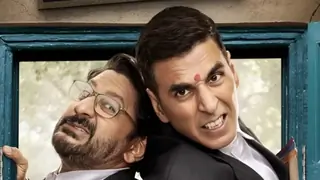Khusrau Mirza- A prince who accepted death for his wife's love
Khusrau Mirza was Prince Salim and Princess Man Bai(Shah Begum) first born son born on Aug 16, 1587. His grandfather was Raja Bhagwan Das and maternal uncle Raja Man Singh. His wife was the daughter of powerful Khan-i-Khana Rahim.
His eldest son was Dilawar Khan and his second son was Buland Akhtar(who died at young age) from his chief wife the daughter of Khan-e-khana Rahim. It is said that Khusrau was extremely popular among the citizens for his good nature and the nobels for his great administration and manners and military skills.
Akbar wanted him to succeed as the emperor. Khusrau had not wanted to purposely go against his father but the nobels and Akbar himself pitted him as a legitemate heir to the throne against his father. When Jehangir revolted against his father and with his uncles Murad and Daniyal dead by indulging in opium he had no options but to follow his grandfather and courts wishes. The powefu Man Singh, Bhagwan Das and Khan-e-khana supported him in court to be the next emperor.
But then the persian nobels and the religious were anxious since if Khusrau became emperor the Rajput influence would strengthen and Persian and Ulema's influence would reduce. They started secretly conspiring to make Jehangir the emperor on the promise that he will follow an orthodox islamic way of court dealings rather than the liberal ones of his father Emperor Akbar. Jehangir in order to win the nobels support agreed. Also when Jehangir went to Agra fort to meet his hailing father a courtier came and warned him pf a plot to assasinate him by Khusaru's men and had to return back.
Jehangir's step mothers Ruqaiah and Salima begum the timurid princess too supported him only and Akbar was told that as per timurid traditions he cannot make a son as emperor when father was alive. Akbar finally crowned Jehangir as the future emperor. Khurau's mother caught between father and son committed suicude in May 1605 by overdose of opium.
Jehangir was crowned emperor after Akbar's death in 1605. Khusaru Mirza and his wife was placed under house arrest in agra fort by Jehangir. Khusaru was frustrated and on the pertex of going to visit his grand father's grave at Sikandra left with a few hundred of his army men. He was joined by Hussain Beg and Khan e khana Rahim and rtheir army's. He fled to lahore fort where he laid seige. On the way Sikh Guru Arjan Dev blessed him for which he paid a heavy price. Jehangir was swift and defeated his forced and captured him. All his forces were impaled alive on stakes and Khusrau was forcced to see their pain. Finally an soldier was ordered to pierce metal wire into his eyes to make him blind. It is said by people that Khusrau was brave enough not to protest or utter a single word as this procedure was conducted and it made local citizens admire him more for his courage under immense pain. Khusrau and his wife were house arrested in Agra fort palace.
Jehangir soon felt remorse for his actions and asked the royal physicians to restore his sight and even allowed him to come for court proceedings. Khusrau's popularity was high even after almost a decade after the revolt and blinding. Khurram-Shah Jahan was apprehensive of his popularity and his father's growing affections for his first son. Khusrau was now allowed to go outside the Agra forts to nearby gardens etc. Khurram was ambitious and wanted to be next emperor at any cost. He was scared that his father was getting close to Khusrau and his children Dilawar Baksh(Jehangir's fav grandson).
It was 1620 and Jeghangir requested Khurram to handle the Deccan rebellion. Khurram was ready to go but on one contion to hand Khusrau in his custody. Jehangir refused initially but Nur Jahan who was angry with Khurau for rejecting to marry her daughter Ladli Begum forced Jehangir to hand him over to Khurram. Khusrau and his wife were under Khurram's custody in 1620 and left for Deccan where he was placed in house arrest again on Khurram's orders.
It was Jan 22, 1622. Shah Jahan recieved the news that Jehangir was serious from his father-in-law Asaf Khan(Mumtaz Mahal's father and Nur Jahan's brother). Shah Jahan was scared as Khusrau was very popular among masses and Khurram was not that loved because of his arrogant and cruel nature. He ordered to kill Khusrau the same day and he was killed defenceless in his cell with his wife. He was buried in Deccan immediately in secrecy.
Jehangir miraculously surivived a bad health scare and he was informed by Khurram that Khurau died of illness. But it was not long before Jehangir got to know truth from some insider in Deccan the way he had been killed. There was uproar in courts and the streets the way a promising young prince a future potential emperor had been killed. Jehangir had confusing emotions he had grown fond of Khusrau in recent times but at same could not forgive his rebellion.
He ordered Shah Jahan to imediately come and answer him at court but Shah Jahan refused to come to court and rebelled against his father for throne. Jehangir was furious declared him "Be daulat" and a traitor. Jehangir had Khusrau's body excavated and buried him along his mother Man Bai in Allahabad-Khurau Bhag. Nithar Begum his unmarried sister was also buried near him after her death. She oversaw the construction of Khusrau Bhag. Jehangir wanted Dalawr Baksh to become the next emperor.
But after his death and Shah Jahan deceitfully taking over as emperor he ordered to kill all of his brothers children and Jehangir's two brothers Murad and Daniyal's children. Khusrau sons Dilawar Baksh, Garashap, Sharyar, Tamarus, Hoshang were executed along with other male cousin brothers and uncles sons on Jan 23, 1628 at Lahore fort by Asaf Khan the scheming father-in-law. All male relatives of Mughal dynasty were executed except Shah Jahan and his own sons.
Khusrau had a sister Nithar Begum and step brothers Parviz, Khurram, Shariyar and Jahandar and another step sister.
On a final note:
Khusaru was a capable prince but he was surrounded by highly ambitious and decietful family members like Nur Jahan, Khurram, Jehangir etc. He was pushed to center stage by his grandfather Akbar but he could not continue the support in final stages. But by then Khurau had wanted to become a emperor because he was told he would be a better emperor and the masses loved him. But alas, Jehangir was powerful an emperor of more 5lakh army and Khurau was young not good at political manevouring. Hence he lost the succession war and his eyesight and life. He had chance to become an emperor to marry Ladli begum but he refused Nur Jahan as he was loyal to his chief wife who lived with him in house arrest.
Some experts on him from historical records
Edward Terry, a clergyman at the Mughal court writes of him: "He had a pleasing presence and excellent carriage, was exceedingly beloved of the common people, their love and delight". At 18, Khusrau was everything his father was not: personable, brave, and a talented battlefield commander.
In a measure of the popular feeling that Khusrau could still arouse, several voices at court, including those of Jahangir loyalists, pleaded for him to be spared. But the Emperor was adamant and in one contemporary account, the act was done by wire inserted into his eyes, causing a pain "beyond all expression". He was then thrown into a dungeon. Through it all, the victim bore himself stoically, uttering not a word of remonstrance.
Nur-Jahan was a consummate player in the game of power. In a bid to neutralise Khurram, she approached Khusrau for the hand of Ladli Begum, her daughter by her first husband. The adventurer Pietro Della Valle has left a fascinating account of what followed. First Nur-Jahan informed Khusrau of that which he knew already: that Khurram had demanded the custody of Khusrau from Jahangir. Khurram claimed that he feared another plot against Jahangir by his half-brother. This fooled no one, for by now it was patently clear that Khusrau was incapable of mounting anything like a conspiracy. Khurram was simply taking steps to remove all rivals in his path.
But Khusrau still commanded many loyalties. The same begumswho had supported Jahangir against Khusrau earlier now worked hard for his safety, and, as a compromise measure, Khusrau's custody had been given to Nur-Jahan's brother, Asaf Khan. Now if only Khusrau would consent to marry her daughter, Nur-Jahan promised him not only his freedom but also that she would throw her weight behind him in the succession.
It was a master stroke by a master strategist, except that Khusrau refused. His reason for doing so stunned Nur-Jahan and her clique: love. His wife was his beacon, the one person who had stood by his side through all the years and he would have nothing whatever to do with another woman. Remember this was an age when large harems and polygamy were the undisputed norm. And the Prince's options were very likely laid out starkly before him: the throne, or at the very least freedom and luxury versus certain death. Then perhaps we can get a glimmer of the incredulity that Khusrau's answer must have evoked. His wife, according to Della Valle, begged him on bended knee to accede to Nur-Jahan's plan and save himself, but Khusrau "could never be prevailed with".
Throughout 1616-17, Nur-Jahan and Asaf Khan worked on Khusrau, but he remained steadfast in his refusal to contemplate another woman. Finally they gave up and turned instead to the pliable Shahriyar. Khusrau's usefulness to the Empress was at an end, and now she made no further effort to stall his transfer to Khurram's custody. Khusrau had effectively signed his own death warrant. In 1617, he was given over to Khurram (known now by the honorific Shah Jahan) who had him quickly moved to Burhanpur in the Deccan. Khusrau was now a man on borrowed time.
The end came in January 1622. The most widely accepted account is that a slave of Shah Jahan's named Raza Bahadur sought to enter Khusrau's chambers in the middle of the night. When Khusrau refused him entry, Raza Bahadur broke open the door and rushed in with some accomplices and fell upon Khusrau. Khusrau shouted out to wake his servants and, despite his partial blindness, defended himself bravely but to no avail. He was strangled and then re-arranged on his bed to make it appear as if his death was natural.
Early next day, his wife was the first to discover him. Her shrieks soon wakened the palace. On January 29, Jahangir received word from Shah Jahan that Khusrau had died of qalanj, colic pains. But, as word of Khusrau's death swept across the empire, there was a public outpouring of grief as had not been seen for a long time. The popular verdict was overwhelming: murder. As far west as Gujarat, people were heard to cry for vengeance against those who had shed the blood of an innocent. Jahangir himself seems to have not been unduly distressed at the news; his ire was reserved for Shah Jahan for seeking to conceal the truth of Khusrau's death from him. On the Emperor's orders, Khusrau's body was exhumed from his makeshift grave, sent to Allahabad and consigned in a mausoleum next to his mother's in a garden, now called Khusrau Bagh.
A movement soon came into being that proclaimed Khusrau a martyred saint and shrines sprang up wherever his body had rested on its way to Allahabad. So popular were these shrines that a contemporary Dutch observer wrote that "both Hindus and Moslems went there in vast numbers in procession each Thursday ... to his worship". Until, that is, Jahangir ordered them destroyed and the worshippers driven away.
Despite this attempt at canonisation, it seems fair to say that, as with life, death has not been kind to this unfortunate prince. In one of history's great ironies, the man who most likely killed him " Shah Jahan " is universally celebrated for leaving us with that sublime monument to man's love for a woman: the Taj Mahal. Devoted though he was to his wife Mumtaz Mahal, Shah Jahan had liaisons with many women after her death. Rather, it is in the unfolding of his brother's life, in Khusrau's searing affirmation of the centrality of one love, that we see its most enduring monument.
Edited by myviewprem - 11 years ago






























367